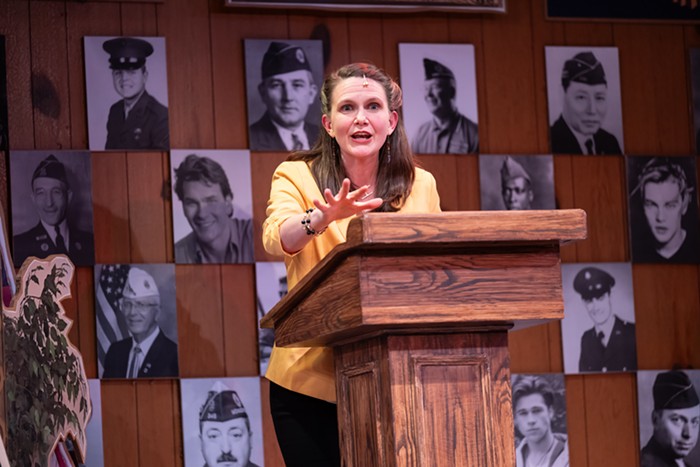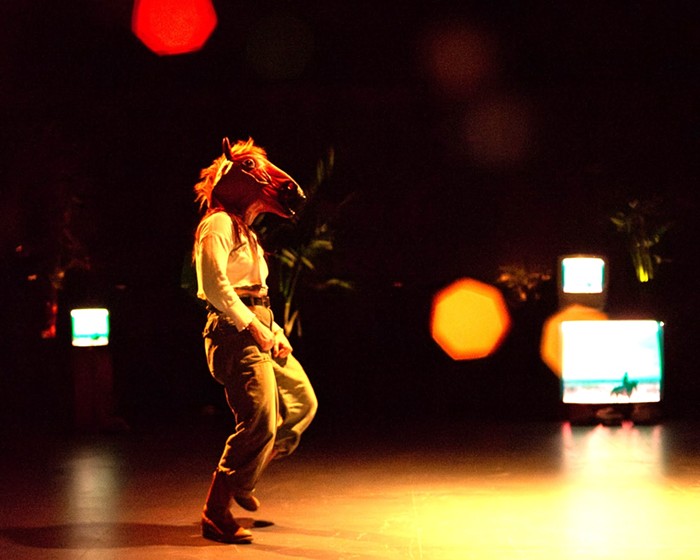THE OPENING NIGHT energy was palpable and light at the first performance of Third Rail Repertory Theatre’s Annapurna. The show begins inside a disheveled one-room trailer, where a man, naked except for a (welcome) apron, is cooking. A woman enters with a suitcase, launching a story of love and forgiveness after the end of a magnetic and codependent relationship.
It’s the story of Emma (Karen Trumbo) and Ulysses (Bruce Burkhartsmeier), and it unfolds in one act over the course of 90 minutes. The few scenes are played staccato, with heavy repetition and Aaron Sorkin-style dialogue: “Don’t pretend you’ve never been been given a finger without taking the whole hand.”
“Holy crap,” says one character. “I know,” replies another. Those paired phrases repeat four times.
It’d be easy to call Burkhartsmeier’s Ulysses the villain, and the more compelling of the two characters, but as in any relationship, it takes two. The actor plays Ulysses as a naïve alcoholic whose emphysema is convincingly portrayed with labored breathing and coughing that persists throughout the show (here’s your misophonia content warning). He oscillates between antagonist and victim, abused and abuser, compassionate and confused. Burkhartsmeier slays Ulysses’ dialogue, balancing between moments of quiet and loud, and emotional poles of anger and sadness.
Just as it’d be easy to call Ulysses the villain, it’d be simple to write Trumbo’s Emma off as codependent and annoying. As onlookers to this intensely chemistry-driven relationship, it’s easy to ask, “Why the fuck would she do that?!” instead of imagining the hell she’s going through. There are, of course, moments where Emma earns empathy from the audience, and where her actions are the most understandable, but there are just as many where she’s basically yelling too much.

In other moments, Emma looks luminescent and angelic—the lighting crew on this show is incredible, as is the design team. The mountainscape on the walls surrounding the trailer creates an intimacy between the characters onstage and the audience. We are in that trailer with Emma and Ulysses as they dig into and dissect their shit. We’re in purgatory with them, complicit in the abuse, codependency, and potential forgiveness.
Annapurna was well received by the audience which at the performance I attended gave the play a standing ovation, but I found myself rooting for a murder-suicide at multiple points in the show. I was left unsatisfied as Emma and Ulysses instead found a detente through compassion and love. It’s easy to find allegory, symbolism, and meaning in the dialogue, set, and framework of this production—was I hoping for that murder-suicide because I don’t have enough compassion, love, or forgiveness for the shitheads in my life?—and the English major in me wants to dissect it all for you here, but that’s where all the fun is, so you’ll have to see it for yourself.


















